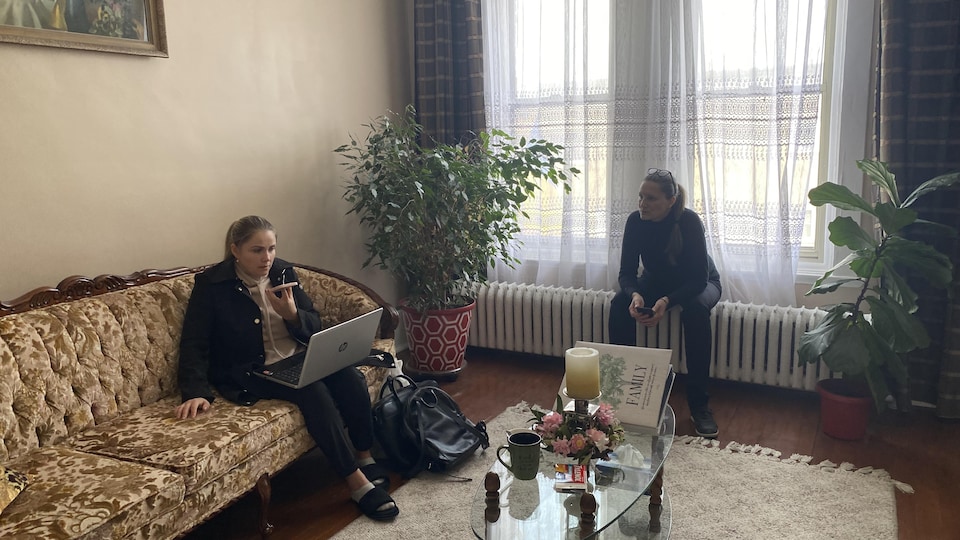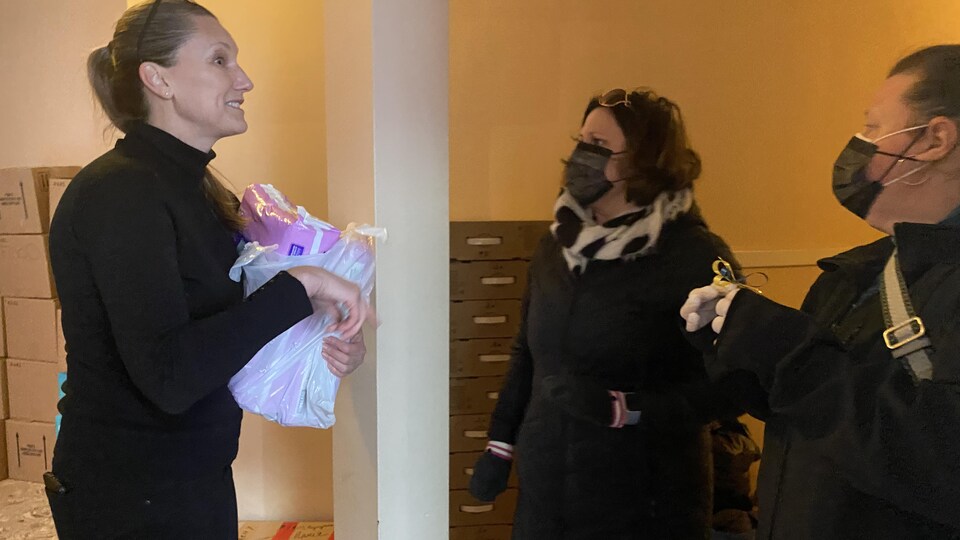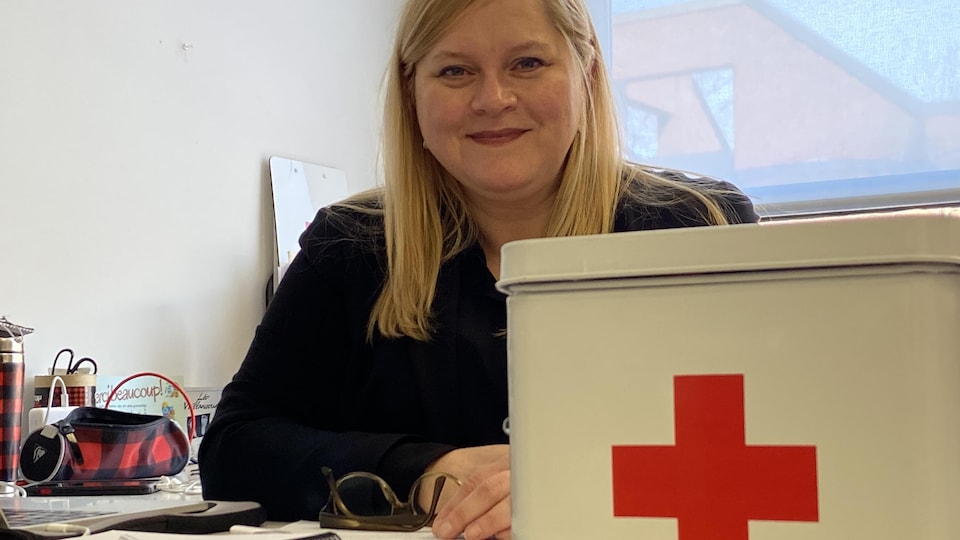
Wednesday morning, presbytery of the Ukrainian Catholic Church of Saint-Michel-Archange, in the borough of Ville-Marie in Montreal. Outside, everything looks calm, but inside, it’s crowded.
The area has become the headquarters of dozens of volunteers who have dedicated themselves body and soul to the collection, sorting and packing of basic necessities reserved for Ukraine.
Although shipping material goods by ocean to a war zone was a complex and demanding operation, they were determined to continue until the war was over.
Camilla, eight years old, did not have to be asked to count all the boxes piled up anywhere in the presbytery, but also in the adjacent church. Seventy!he says looking proud.
As she dances her light blond ponytail across all the rooms, her mother, Hanna Tatsenko, makes multiple phone calls. Sitting on the sofa, kneeling at the computer and holding the phone, he explained that the goal was to find a plane to ship, from Montreal, a hundred pallets of boxes full of personal hygiene products. , medicine, dressing and non -perishable food. .
Over the past few days, we’ve been shopping, talking to different airlines, finding out which one can give us a better price for what we want to ship. People were calling to give us money to pay for the plane, but we wanted to use that money wisely.explanation of the young Ukrainian mother.
Marta Zybko is Polish. Together with Hanna, she handles the logistics of the operations. Because she has worked in finance in the past, she uses her skills and professional connections to help the people of Ukraine and their Canadian diaspora.
I came here one night and asked, “what do you need?” […] They said: “we need a plane”. I said, “Ok”, and I lefthe says. I came back a week later, but there I mobilized everything I could to accomplish it and it was progressing well.
Marta, Hanna and their fellow volunteers rely on their network in Europe and some parts of Ukraine to receive and distribute donations. So far, the organization has been able to ship three convoys of products by air: two from Toronto and one from Halifax. And they arrived safely, according to Martha.
The volunteers of the Ukrainian Church of St. Michael the Archangel also takes care of accepting donations. This morning, sisters Nathalie and Andrea Bishyk were carrying 25 boxes.
It’s for Clearpoint Elementaryat Pointe Claire. [Les élèves] collected it all for Ukraine. And we have other boxes that we will take probably tomorrow or Fridaylaunched Nathalie Bishyk.
As a dozen volunteers carried the boxes from the car to the sorting room in the presbytery, Andrea Bishyk admitted she was affected by the crisis that Ukrainians are experiencing.
Our father is Ukrainian and it affects us. My grandparents came from Ukraine when they were 17. We [connaît] there are many people in the community and it breaks our heartshe says.
The right way to help?
Sending donated materials abroad during the war was not the right way to help, according to François Audet, director of the Montreal Institute of International Studies and the Canadian Observatory on Crises. and humanitarian action.
All of these supply chains now require more than ever extremely careful control over what is shipped. And we don’t want it to be a futile effort, we don’t want, at the end of all that, when we open the containers sent by the planes and which will take up a significant resource, that it is completely decomposed .he warned. But it happens very often..
According to him, it is necessary to remember the mistakes of the past so as not to be repeated.
” We’ve seen it in Haiti in particular, with containers remaining squarely in the harbor, in Port-au-Prince or even in Miami, for years. And we don’t know what to do with it! Even if it all started in good faith. “
He believes it is best to send monetary donations to reputable non-government organizations (NGOs) that have developed expertise in the field and ground networks, and added that it is best not to confuse our own need to help those real needs of the communities concerned.
The International Committee of the Red Cross (ICRC) is one of NGO most often requested during a humanitarian crisis. It brings together 192 Red Cross or Red Crescent Societies in many countries. According to Canada branch spokeswoman Carole Du Sault, this global movement makes it possible to combine different fields of expertise and to intervene quickly. However, he believes the help can be arranged in many ways.
Obviously there is complexity that accompanies the whole logistics issue. But hey, we have our logistics, our ways of doing things, others will find solutions, ways of doing things. In the aerial view of everything happening at the moment, there is a beautiful unity that unfolds. I assume it will be felt in different ways in Ukraine or elsewherehe argued.
Marta Zybko, Hanna Tatsenko and all their fellow volunteers from St. Michael the Archangel Ukrainian Catholic Church in Montreal is dedicated to helping Ukrainians stuck under bombs. They will do everything to ensure that the donations collected reach the destination.
But ultimately, their dearest wish is not to find a plane that will allow them to send some convoy of material from Montreal, but this nightmare will finally end.
Can you stop the war?, Hanna asked, eyes in the water. “Ah yes,” Martha breathed.
But they do not have time to cry, you have to go back to work.
Source: Radio-Canada


